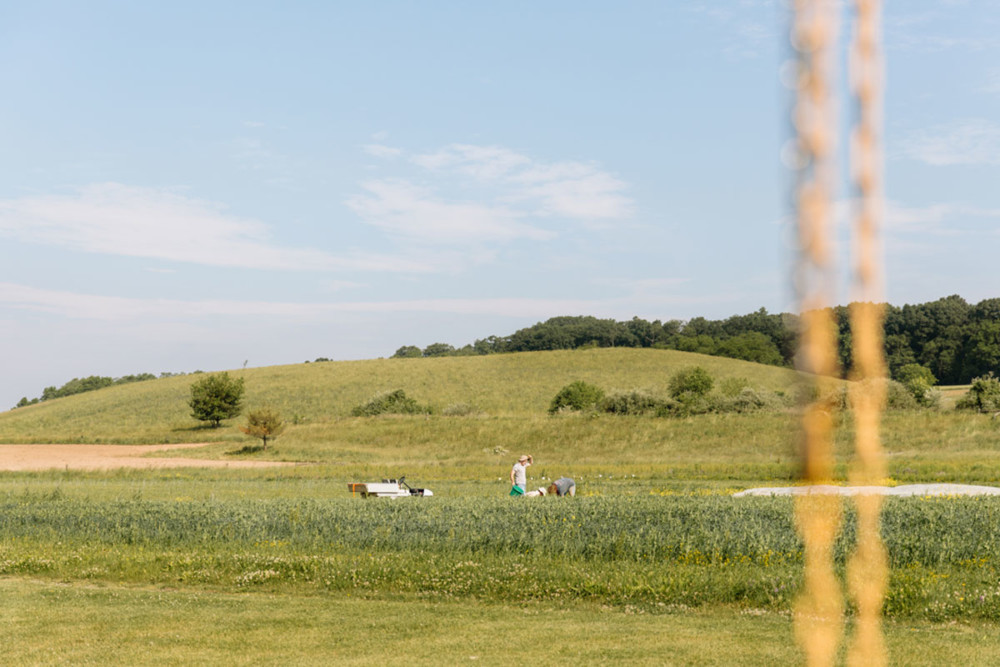
Supporting soil health and organic farming in the Delaware Watershed is a win-win-win for clean water, farmers, and local economies
Agriculture runoff is a major problem. The Rodale Institute & American Sustainable Business Council shares one simple way to protect our water.
By Dr. Andrew Smith, Rodale Institute & David Levine, American Sustainable Business Council
According to the EPA, agricultural runoff is the leading cause of pollution in rivers and streams. That means agriculture is a bigger threat to clean water than factories, transportation, or industrial waste.
The current form of agriculture as practiced on most of the land across the Delaware Watershed and the United States pollutes our water. This jeopardizes thousands of businesses including breweries, restaurants, outdoor recreation leaders, and other businesses that depend on clean water for their businesses to thrive. To tackle this issue, farmers, scientists, and business leaders need to come together to push policymakers to do more to support soil health and regenerative and organic agriculture practices. Doing so will benefit farmers, the economy, and the environment.
In the 1970s, policymakers succeeded in addressing the most notorious point-source water pollution offenders. Thanks to the Clean Water Act, there are no significant limits on the amount of waste industries can discharge local waterways. Yet our watersheds continue to suffer.
In the Delaware River Watershed, where 14,000 farms represent more than 20% of total land, agriculture has become a significant influence. Protecting the watershed is not only important for the 13 million people to whom it provides drinking water across New York, New Jersey, Pennsylvania, and Delaware, but also vital for the region’s economy and local businesses. Recreational fishing contributes about $575 million annually to local economies throughout the watershed. Other businesses, such as breweries, waterside lodging, and restaurants are also highly dependent on a clean and healthy Delaware River Watershed.
More than 25,000 miles of streams from these four states carry what is upstream-downstream, ultimately compounding in major metropolitan areas like Philadelphia and Wilmington, before dropping everything into the Delaware Bay. In this region, what’s on your fork, and how it was grown, matters for the water quality in your kitchen tap and the algal blooms plaguing your favorite local beaches.
Rodale Institute and the American Sustainable Business Council recognize a need for a scientific and business partnership to protect clean water. Pursuing a regenerative organic food system, which leaches no toxic chemicals into waterways, improves soil water infiltration and retention rates, reducing erosion and nutrient loss to water, and is a critical step in removing agriculture from the water pollution equation and making it a part of the solution. The less we pollute the water, the more opportunities for small businesses that revolve around the resource to flourish.
Although we’ve known about the impact of agriculture on watersheds for decades, research pinpointing specific farming methods and their impact are still needed. In 2018, Rodale Institute partnered with Stroud Water Research Center and Natural Lands in southeast Pennsylvania to start the Watershed Impact Trial, a long-term research trial testing four management systems of agricultural practices, including full-till conventional, conservation no-till, organic, and regenerative organic no-till, to understand the impact of agriculture on water quality.
Research in the trial is just trickling in. Data collected from the long-term Farming Systems Trial over 40 years at Rodale Institute (Kutztown, PA) finds organic practices improve soil health compared to conventional practices. It is expected that these changes in soil health will lead to improved water quality and quantity of our regions water. In addition, organic systems prevent toxic chemicals such as herbicides from leaching into waterways since these chemicals are not used in organic agriculture. As climate change alters our weather patterns, organic agriculture is a critical step in building the resiliency that’s needed to ensure the safety of our water and food system.
At the same time, there is growing consumer demand for products produced with sustainable practices. A growing majority of consumers are willing to pay more for responsibly produced food, leading to a potential economic opportunity for businesses that make sustainability their focal point. It’s clear – organic, regenerative agriculture is a benefit for business owners.
Expanding support for soil health and organic practices in the Delaware Watershed will be a win-win-win for the farmers, communities, and businesses. Let’s all call on our policymakers to act.
Dr. Andrew Smith is the Chief Operating Officer/Chief Scientist of Rodale Institute. Smith earned a Bachelor of Science in agronomy at Cornell University and a Master of Science in entomology at the University of Maryland.
David Levine is the co-founder and president of the American Sustainable Business Council. He has worked as a social entrepreneur for over 30 years focusing on the development of whole systems solutions for a more sustainable society through building strategic partnerships and broad stakeholders initiatives.
Photo: Rodale Institute Fields by Johnie Gall.





